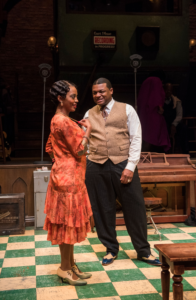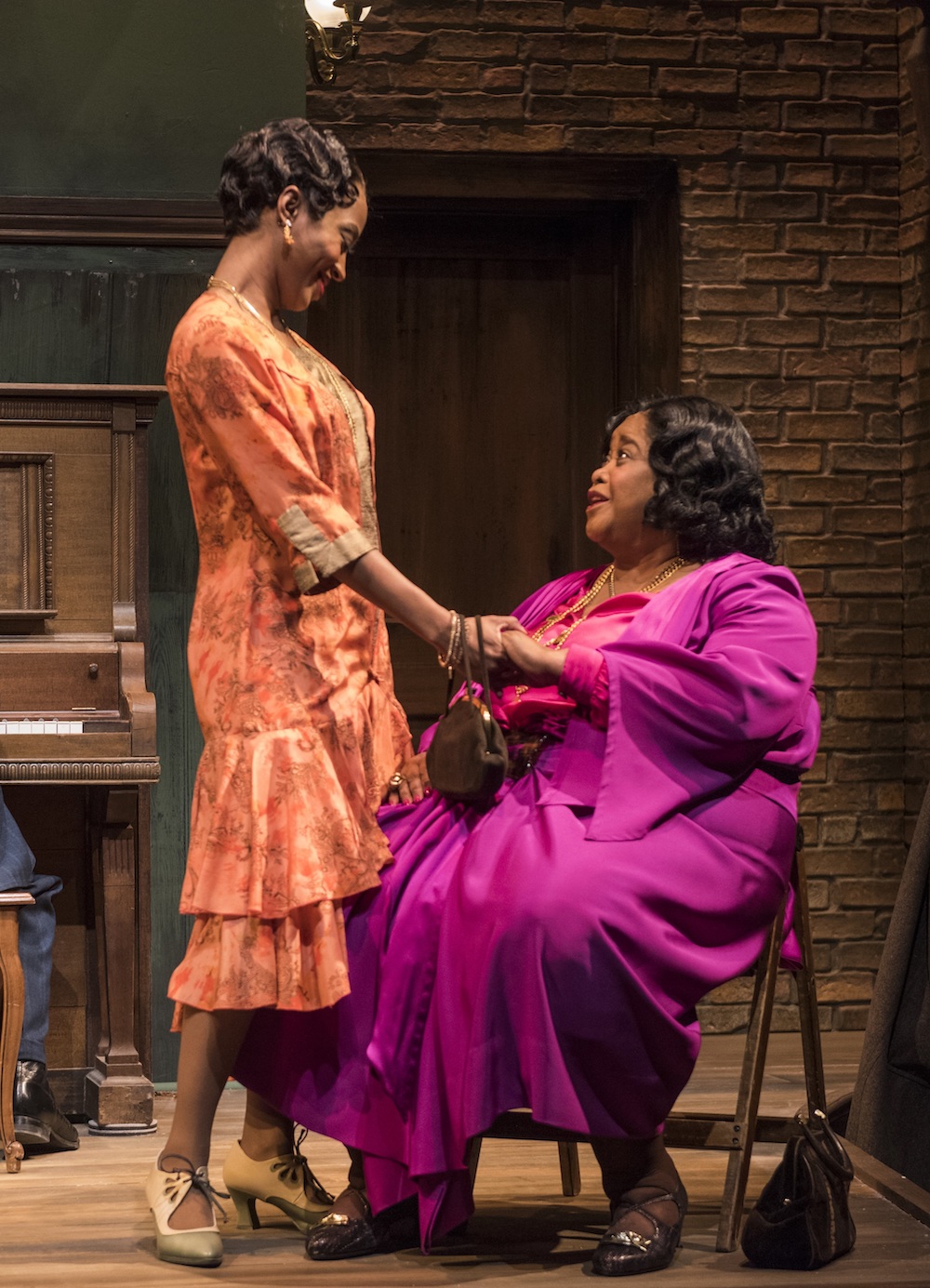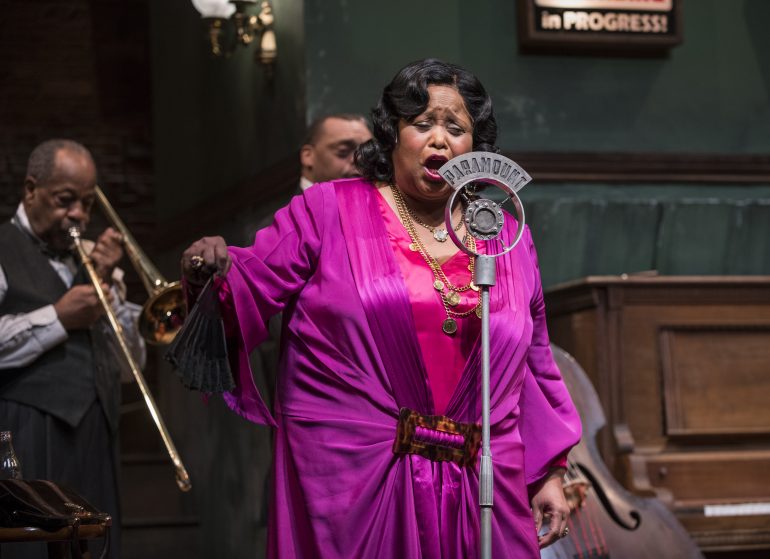In 1982, August Wilson’s play Ma Rainey’s Black Bottom catapulted him into the national spotlight; it was one of the works from Wilson’s 10-play Pittsburgh Cycle that chronicles the 20th century African-American experience, though this is the only one that didn’t take place in Pittsburgh.
This particular play fictionalizes the real life of Gertrude Malissa Pridget, known as the singer Ma Rainey, the “Mother of the Blues,” whose career spanned from 1899 to 1933. Theresa Merritt, who played the original Ma, gained her fame in this role and earned a Tony Award nomination.
Wilson’s work deals with a lot of issues of art, religion and the historic exploitation of Black recording artists by white producers. The title refers to a song of the same name by Ma Rainey referring to the dance called the “Black Bottom!”
Ma Rainey’s Black Bottom runs through March 17 at Writers Theatre in Glencoe, Illinois. It is set in Chicago, in a Bronzeville church that has been converted into a recording studio in 1927. The play starts with four band members Cutler/trombonist (Alfred H. Wilson); Toledo/pianist (David Alan Anderson); Slow Drag/bassist (A. C. Smith) and Levee/trumpeter (Kelvin Roston Jr).

They are waiting the arrival of Ma Rainey (Felicia Fields) so they can record a new album of her latest songs. During their wait, the four men share stories, joke around, argue and philosophize about life and being a Black man in America.
An hour after the designated time that Ma Rainey was supposed to show up for the recording session, she arrives with her stuttering nephew Sylvester (Jalen Gilbert), whom she insists speak the title song introduction, and her girlfriend Dussie Mae (Tiffany Renee Johnson). Ma, a woman who commands respect from her white producer and agent, is determined to do things her way and no one is going to tell Ma what to do and when to do it.
Adding fuel to the fire, Ma’s continual fights with Sturdyvant (Thomas J. Cox), the studio owner, is making him livid. He’s cheap, wants to keep the heat turned down and demands that her manager (Peter Moore) keep her in line during the recording session; however, with Ma, things never go as planned.
August Wilson’s plays are known for using the derogatory n-word; it appears 327 times in his complete Century Cycle. The use of this word is to emphasize racism and the rebellion against racial inequality. Wilson felt that the utterance of the n-word signifies feeling and condition, rather than a word that signifies actual people.
Ma Rainey’s Black Bottom is a very intense play with a lot of layers of racial dynamics, religion, art and social activism. In-demand theater director Ron “OJ” Parson, who was there from the very beginning to see the premier go from Yale to Broadway in 1984, also starred in the play a few years later in the lead male role of Levee. He is now reviving this historic play by directing it for the fifth time, with some new fresh elements.
Renowned actress and singer of the Chicago scene Felicia Fields, who has appeared in productions around the world, does a superb job as the wise, tough-talking Gertrude (Ma Rainey), a role she played at Goodman Theatre back in 1997.
Fields brings a fresh take on the blues singer and bandleader, who has the final say in recording decisions. Ma Rainey also knows that the only reason her agent and the studio owner are jumping to meet her needs is that she can be commercialized to make them more money and then they can discard her.
Other notable actors in this play include Kelvin Roston Jr., as the talented temperamental Levee, the trumpeter who had big dreams of fame that included him having his own band. He has a compelling, persuasive scene where he curses God for his mother’s rape by a gang of white men.


Then there’s Tiffany Renee Johnson, who does a good job playing Ma Rainey’s beautiful, sultry girlfriend (and lover) Dussie Mae, who dreams of being Levee’s woman, as well, when and if he gets a band together.
Director Parsons does an excellent job of showing the devastating effects of racial discrimination and how white society has traditionally regarded Black Americans. This play is a powerful juggernaut that will definitely stir up your emotions.
We “Recommend” that you check out this visceral American classic drama that reveals the struggles of African American entertainers, with an unexpected climax at Writers Theatre. Warning: The n-word is used numerous times within the play.






